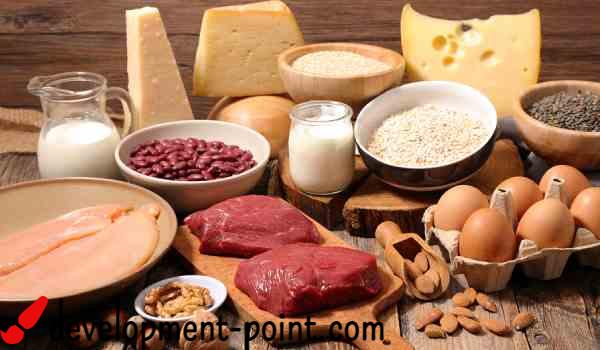Therapeutic benefits of dill and ways to use it (Ain al-Jarada)
dill herb
Dill is the fresh or dried leaves of the dill herb. It has several names, including the dill, the eye of the locust, and the dill. It is native to the Maghreb, and some regions of Europe and Asia, and is cultivated in many countries of the world. The benefits of dill are many because it contains many dietary fibers, minerals, and vitamins such as vitamin C, vitamin A, and a group of B vitamins.
dill seeds
Dill seeds and dill leaves are different because they contain different oils, which give each one a slightly different flavour. Dill seeds also contain a higher percentage of calcium and iron. However, both are widely used in cooking, and the benefits of dill are very similar whether the leaves or seeds are used.
The nutritional value of dill
One cup (9 grams) of fresh dill leaves contains approximately:
- Vitamin C: Contains 8% of the required daily value
- Vitamin A: Contains 4% of the required daily value
- Manganese: 5% of the required daily value
- Folic acid: 3% of the required daily value
- iron: 3% of the required daily value
- Calories in dill: 4 calories
Also, one of the benefits of fresh dill is that it provides about 1%-2% of the required daily value of calcium, copper, magnesium, potassium, riboflavin, and zinc.
Dill uses
Dill herb can be used in preparing many dishes. Fresh dill has a stronger flavor than dried dill. Dill can be used in preparing daily dishes such as:
- Add dill to soup or grilled vegetable dishes.
- Add it to green salads, potatoes or tuna salad.
- It is used to add flavors to fish, meat, and egg dishes.
- Dill is added in the manufacture of some baked goods.
- It is added in sauces and marinades.
- Dill can be roasted in the oven with carrots and olive oil.
The benefits of dill
The dill herb, or the eye of the locust, has many health and therapeutic benefits. Among the most prominent benefits of dill:
1. Reduce depression
A study published in the American Journal of Therapeutics showed that dill aqueous extract, which has antidepressant properties, can be used as an effective natural remedy for depression, and as an analgesic when compared to sertraline and tramadol.
2. The benefits of dill for the menstrual cycle
Some studies have found that locust herb has helped reduce pain and cramps associated with the menstrual cycle in women.
3. Lower cholesterol levels
One of the amazing benefits of dill is that it lowers glucose levels, lipids, and liver enzymes. Laboratory studies on mice found that it has an effective effect on cholesterol, triglycerides, liver enzymes, gene expression, and enzyme activity.
4. The benefits of dill for the skin
Dill is a rich source of antioxidants and is antimicrobial. This may help maintain healthy skin and protect it from the risk of pimples and acne.
5. Effective insect repellent
Compared to other oils used in insecticides, dill oil has proven to be the strongest in repelling insects, followed by yarrow oil, eucalyptus oil, and tea tree oils with lemon scent. Which makes it a perfect choice because it is safer than chemicals that cause diseases.
6. Epilepsy treatment
Epilepsy is a common neurological disorder, and despite the availability of many medications, which help reduce associated symptoms such as seizures, most of these medications may have unpleasant side effects. So using dill leaf oil may be a good natural alternative to treat cramps, which was found by a scientific study published in the Malaysian Journal of Medical Sciences.
7. The benefits of dill for digestion
It is also one of the benefits of dill, that if it is added to the diet on a regular basis, it may help to obtain some important fatty acids, which are a major source of energy.
8. Antioxidant
Dill leaves and seeds contain antioxidants, which in turn protect cells from damage, reduce inflammation, and help treat some diseases such as Alzheimer’s disease, heart disease, rheumatoid arthritis, and some types of cancer. These antioxidants include:
- Flavonoids: Which helps reduce the risk of heart disease, stroke, and some types of cancer.
- Terpenoids: Dill essential oils contain terpene compounds that help protect against liver, kidney, heart, and brain diseases.
- Tannins: Which contains antioxidant and anti-inflammatory properties.
9. The benefits of dill for the heart
Heart disease is the leading cause of death worldwide. The World Health Organization has indicated that about 75% of heart disease cases can be avoided by reducing risk factors such as poor diet, lack of physical activity, and smoking. One of the benefits of dill is that it contains flavonoids with powerful antioxidant and anti-inflammatory properties, which helps maintain heart health.
10. Regulating blood sugar levels
Several laboratory studies conducted on rats found the effectiveness of dill on improving fasting blood sugar levels, using daily doses of dill. This, in turn, helps reduce the risk of certain diseases such as metabolic syndrome, insulin resistance, and type 2 diabetes. However, human studies are still limited so far.
Dill damage
Eating dill is generally considered safe, but in rare cases some side effects may occur, such as:
- vomiting
- diarrhea
- Allergic reaction to dill
- Swelling of the tongue or throat
Despite the many benefits of dill, it is not recommended to use dill pills or extracts during pregnancy and lactation, due to the lack of sufficient scientific research on the safety of use in that period. Diabetics and people who may undergo surgery should also consult a doctor before using dill as a treatment.

